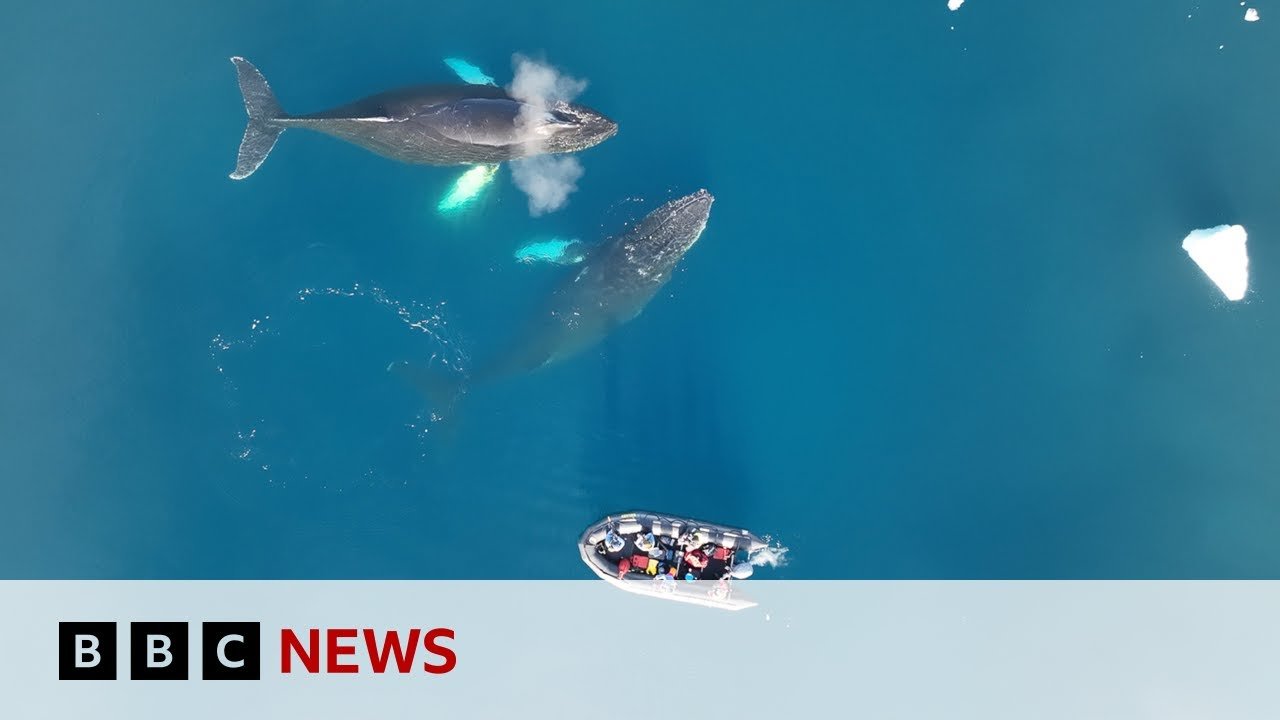- The Antarctic Peninsula is experiencing rapid climate shifts, impacting local marine wildlife, including whales.
- Scientists are studying humpback whales to understand how climate change affects their health and feeding patterns.
- Research methods include using drones to measure whales and crossbows to collect tissue samples for health assessments.
- Findings indicate that reduced sea ice leads to lower pregnancy rates in whales and a potential decline in food sources like Antarctic krill.
- Antarctic krill plays a crucial role in the marine ecosystem, serving as a key food source for whales and other marine species.
- Climate change and human activities, including tourism and krill fishing, pose additional threats to Antarctic marine life.
- The research conducted aims to inform conservation efforts and policy changes to protect Antarctic ecosystems and marine species.
- Scientists advocate for the establishment of no-fishing zones in critical whale feeding areas to safeguard biodiversity.
- The study emphasizes the interconnectedness of Antarctic wildlife, the importance of preserving marine habitats, and the broader implications for global climate health.
The British Broadcasting Corporation is a British public service broadcaster headquartered at Broadcasting House in London. Originally established in 1922 as the British Broadcasting Company, it evolved into its current state with its current name on New Year’s Day 1927.
AllSides Media Bias Rating: Center
https://www.allsides.com/news-source/bbc-news-media-bias
Official website: https://www.bbc.com/
Original video here.
This summary has been generated by AI.

Leave a Reply